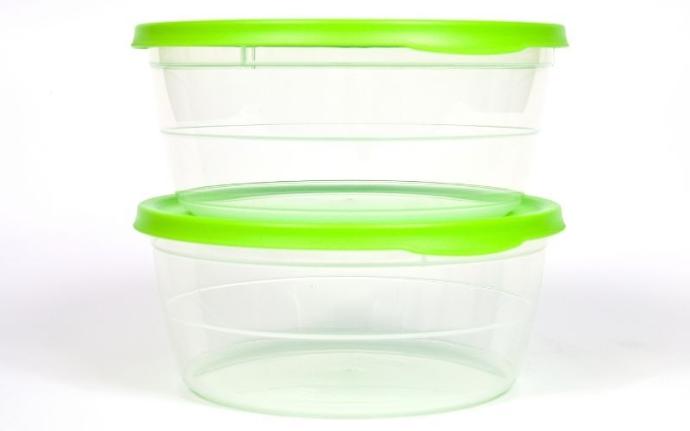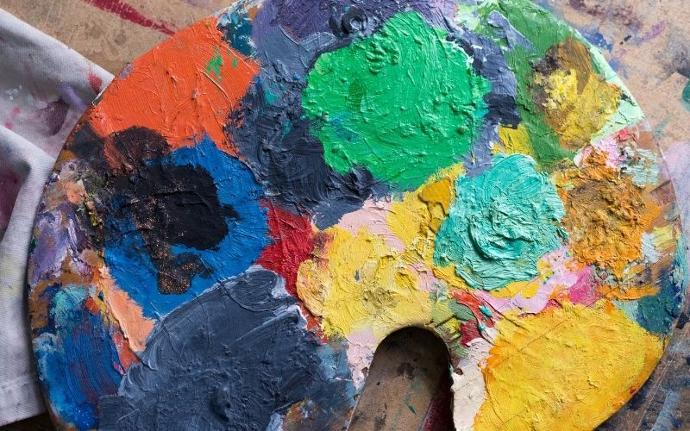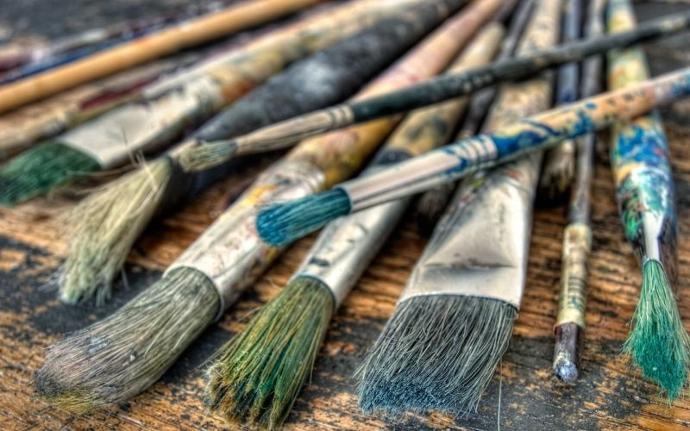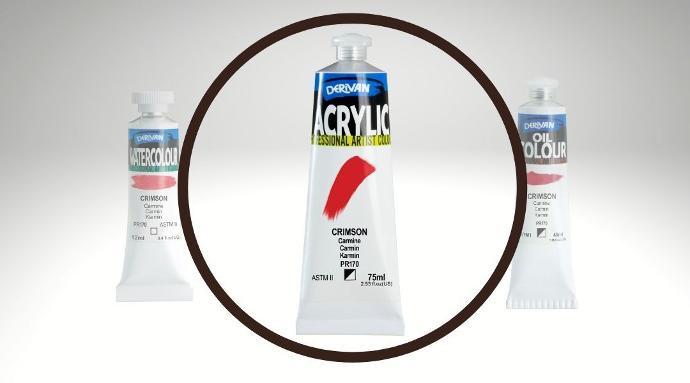THINGS TO CONSIDER BEFORE PAINTING
1. PAINT REQUIRMENTS
Only dispense enough paint/product to be used in the time allotted. This seems like a simple enough idea but is worth mentioning - with a bit of forethought, and you can save cost and waste.


2. COVER YOUR PAINT
Cover and store paints between painting sessions - using airtight containers with as little "headspace" (i.e. use size appropriate containers - don't put 20ml into a 250ml container as the air in the container will be enough to dry the paint out!). Sealing pallets are available; also, using stay wet pallets can prolong the life of the paints. Paints can be stored in the refrigerator (not below 4C), which will slow drying time considerably. You will need to develop and use a method that best suits your practice to prolong the life of the paint you are working with.
CLEAN UP | NO.1
Leave paint on pallets to dry - any excess paint can be left to dry, then once dry can either be left and more paint mixed over the top or for a clean surface, the paint can be peeled off and disposed of into landfill. If this is not practical use a piece of paper towel to wipe up excess paint and then leave to dry. Paper towels can be used to remove excess paint from brushes and tools as well. Once the paint is dry, it will not release any of its constituent parts (including heavy metals) into the groundwater in landfill. It is best not to send "wet" paint to landfill as this may remain wet (if wrapped in plastic, for instance) and has a chance of mixing with groundwater.


CLEAN UP | NO.2
Brushes and tools - these need to be rinsed BEFORE they dry for the most part, the small amount of solids content washed into wastewater is negligible for most artists and can be dealt with easily by wastewater plants (of course, local requirements and regulations should be checked and observed),
-
You may also pour this wastewater onto your plants - best practice is to only dispose of the water on non-edible plants
NB For high volume artists, small co-operatives of artists and schools the following methods combined with local requirements and regulations should be followed.
-
Double trap, using two or more buckets, rinse out your brushes to get the majority of paint off them in the first bucket, then a final rinse in the second.
Depending on how much waste you have and how often you clean your brushes, you can either leave the water to evaporate out and then peel the residue from the bottom of the buckets and dispose of it to the landfill or
If you are a regular user (i.e. daily), you may want to use more than two buckets, keep these buckets sealed in a cool place, and leave for the solids to settle out. You can then pour the cleaner water off the first bucket into the subsequent buckets. With the initial bucket becoming more concentrated, you will get to the point where it will become quite thick as it is quite concentrated - at this point - leave this with the lid off to dry completely and then dispose of into landfill. (if you find the buckets becoming "smelly", this will be due to bacteria, it is best to leave them to dry out as above, or if you find it happens regularly in your climate, it is possible to treat with a household antiseptic liquid if it only occurs irregularly.
PRODUCT
Derivan paints do not contain lead or chromates of any kind, other than trace amounts which would be expected in any product that contains some organic matter. All levels are below regulated requirements, and testing is done on products at a maximum of 5-year intervals. Any other heavy metal elements contained in the paints are fully reacted (and these products are labelled as such) and therefore will present no biological harm if introduced to the environment as landfill in dry form. Likewise, everyday use by artists disposing of their waste wash up water on the garden will present no biological harm. However, we would advise disposing of wastewater on non-edible plants in keeping with known best practices.
